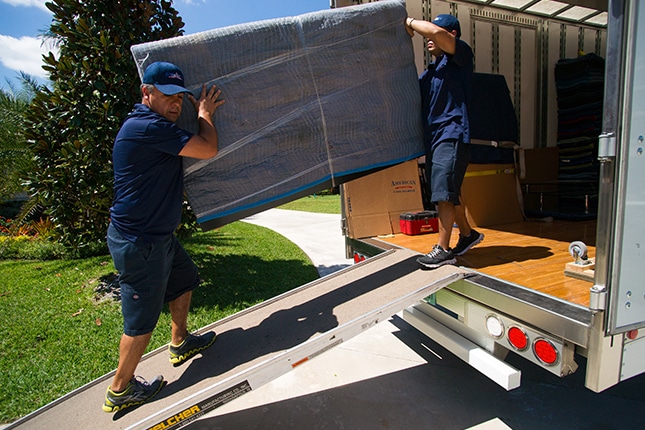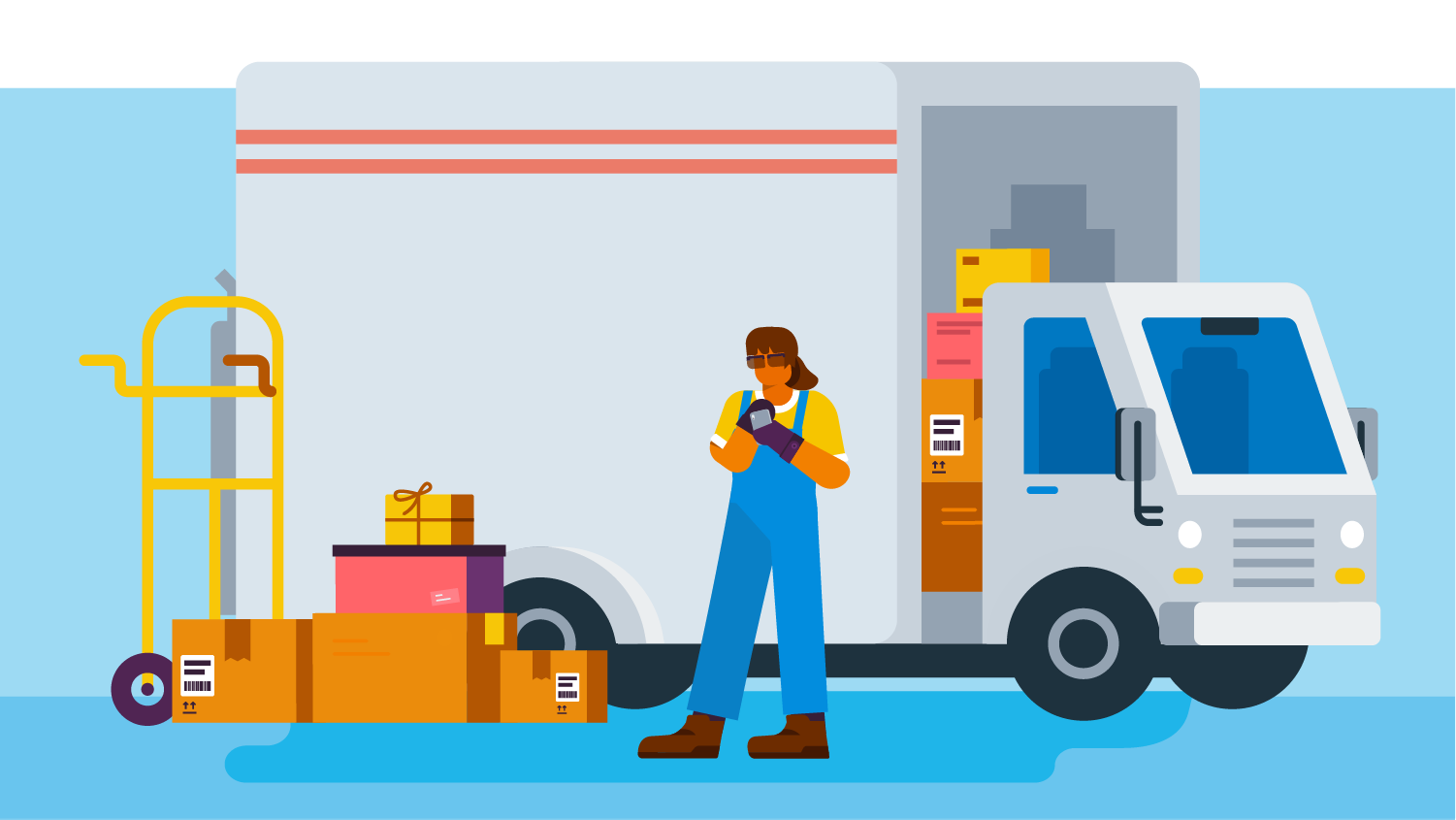International Movers: Professional Relocation Specialists Can Assist Make Your Shift Smooth And Trouble-free
History and Evolution of Moving Services
The Dawn of Moving: From Muscle to Machines
Photo this: a handful of strong males carrying heavy trunks on wood carts, navigating cobblestone streets with sweat and decision. Before the modern moving market took shape, moving was a harsh, labor-intensive task. In ancient times, moving typically meant counting on more info large physical strength and basic tools. The lack of specialized services indicated households and merchants had to coordinate every detail themselves, often running the risk of damage or loss.
However isn't it fascinating how need fuels development? As cities expanded and commerce thrived, the requirement for effective, reliable moving options became glaringly obvious. Get in the age of horse-drawn wagons and later on, motorized lorries, which reinvented how possessions took a trip from one place to another.
Industrial Transformation: The Catalyst for Modification
The 19th century's commercial boom reshaped many facets of life, consisting of how individuals moved. All of a sudden, city migration surged, and with it, the demand for professional movers escalated. No longer was moving an easy task; it evolved into a specialized service offering:
- Packing know-how to secure delicate items
- Organized loading methods making the most of area
- Transport options tailored to different distances
This duration marked the birth of companies devoted entirely to moving, laying the foundation for today's complex logistics and customer-centric techniques.
Technological Developments and Their Impact
Can you imagine moving without contemporary devices? The advent of hydraulic lifts, forklifts, and pallet jacks transformed the market over night. Suddenly, movers might manage bulky furnishings and heavy devices with ease, decreasing injuries and improving performance.
The combination of digital innovation stimulated a new wave of development. GPS tracking, online booking platforms, and real-time inventory management have ended up being staples in the moving services landscape. These tools not just boost transparency however also empower clients to remain linked and informed throughout their moving journey.
Key Milestones in Moving Provider Advancement
| Era | Development | Significance |
|---|---|---|
| Ancient Times | Manual work and standard carts | Structure of moving as a requirement |
| 19th Century | Horse-drawn wagons and packing services | Birth of expert moving companies |
| 20th Century | Motorized trucks and mechanized devices | Increased effectiveness and scale |
| 21st Century | Digital integration and GPS innovation | Improved consumer experience and logistics |
Reflections on the Journey
Assessing the evolution of movers, one might wonder: how did a simple act of transporting personal belongings become an advanced market? It's a tale of durability, adjustment, and constant improvement. From the sweat-soaked streets of old to the precision-driven operations of today, the history of moving services is as vibrant as individuals who depend on them.
Next time you load a box or hire a mover, think about the layers of history embedded in every action. The journey of movers encapsulates human ingenuity, transforming what was when an overwhelming job into a smooth experience.
Checking out the Spectrum of Moving Services
When the time concerns shift your life from one address to another, the variety of moving services readily available can feel like navigating a maze. Do you require a basic loading and discharging team, or does your move demand the finesse of complete packing and unpacking? Comprehending the subtleties can conserve hours of aggravation and unforeseen costs.
Common Types of Moving Solutions
- Regional Moves: Designed for relocations within a city or urban area, these services normally operate on a per hour basis, ideal for brief distances.
- Long-Distance Moves: Covering moves beyond 100 miles, these need more coordination, from logistical planning to secure transport, typically priced by weight and range.
- Full-Service Relocations: Movers handle everything-- packing, loading, transferring, dumping, and sometimes even unpacking. Ideal for those pushed for time or energy.
- Self-Service Relocations: You pack and pack your personal belongings, while the company deals with transport and dumping. A middle ground offering cost savings and some convenience.
- Specialized Moves: For fragile, large, or valuable items like pianos, antiques, or artwork, requiring specialized equipment and proficiency.
Expert Tips to Navigate Your Moving Service Choices
- Prioritize Versatility: Select a service that adjusts to unanticipated delays or last-minute modifications-- stiff schedules can turn a smooth relocation into a logistical problem.
- Check Insurance Coverage Options: Not all moving companies offer the same level of protection. Understanding your protection can prevent distress if something goes awry.
- Demand In-depth Inventories: An accurate item list avoids conflicts and ensures accountability, particularly when dealing with long-distance or specialized moves.
- Consider Time of Year: Seasonal need can impact schedule and pricing. Early scheduling during off-peak seasons may approve better service and versatility.
- Inquire About Packaging Products: Premium boxes, bubble wrap, and cushioning can be the distinction between a scratched treasure and a beautiful arrival.
Table: Service Features Compared
| Service Type | Who Packs? | Transport Mode | Typical Rates Design | Ideal For |
|---|---|---|---|---|
| Local Move | Customer or Movers | Truck | Hourly | Short ranges, little loads |
| Long-Distance Move | Movers | Truck or Container | Weight & & Distance | Cross-state or regional moving |
| Full-Service Move | Movers | Truck | Flat or Weight-Based | Time-sensitive, high-stress relocations |
| Self-Service Move | Customer | Truck or Container | Flat or Hourly | Cost-conscious, hands-on movers |
| Specialized Move | Movers with knowledge | Specialized Devices | Custom Quote | Delicate or valuable items |
The Unseen Complexity Behind Each Choice
Have you ever questioned why moving seems uncomplicated on tv but turns into a waterfall of last-minute choices in reality? The fact depends on the intricacies of each service type. Full-service relocations may seem like a high-end, however the expertise involved in packing delicate heirlooms or disassembling large furnishings is a craft honed over years. Deciding for a self-service move might save money, however it demands an eager understanding of how to load efficiently-- did you know that stacking oddly shaped boxes improperly can cause internal shifting throughout transit, wrecking delicate contents?
Selecting the ideal type of moving service is not practically benefit-- it's about securing your memories and financial investments. What's your relocation's story going to be?

Packaging and Moving Methods
Ever attempted to fit a luggage that simply will not close? That's the type of puzzle expert movers fix daily-- however on a much bigger scale. The secret lies not in brute force however in tactical placement and smart use of space. Packing isn't simply about stuffing items into boxes; it's an art kind where every inch counts.
Layering for Success
Envision a painter layering colors to develop depth. When packaging, start with much heavier items at the bottom, then cushion with softer products like bubble wrap or towels. This prevents damage and makes the most of box stability. Strangely formed items can slip into gaps, reducing wasted area.
- Wrap delicate items individually with tissue or foam to prevent scratches.
- Use clothes as cushioning-- it's both efficient and environment-friendly.
- Fill voids with packing peanuts or crumpled paper to decrease movement.
Identifying: The Unsung Hero

What great is perfect packing if you spend hours rummaging through boxes? Detailed labeling is a game-changer. Rather of unclear tags like "Kitchen," try this approach:
| Label | Description | Priority |
|---|---|---|
| Fragile - Glassware | Handle with care, includes delicate products | High |
| Essentials - Opening Night | Items required instantly after moving | Urgent |
| Books - Study Room | Stacked, heavy books | Medium |
Strategic Packaging Tips
- Take apart large furniture and keep screws in labeled bags taped to the pieces.
- Use uniform box sizes when possible-- stacking ends up being simpler and safer.
- Don't overpack boxes; weight limits exist for a factor. Go for 40-50 pounds max.
- Wrap furnishings edges with moving blankets to avoid scratches throughout transit.
- Seal boxes with top quality packing tape-- double layers on the bottom are important.
Why do some movers swear by a color-coded system? Due to the fact that it gets rid of uncertainty on moving day. Assign each room a color and mark boxes accordingly. This little step can save hours when discharging and unloading.
Packing and moving need precision-- like a chess video game where every relocation counts. Have you ever saw how some movers handle large items easily? They leverage angles and pivot indicate browse tight corners without damage. It's not muscle; it's method.
Hidden Struggles Behind the Moving Van Doors
Ever enjoyed a group of professional movers bring a grand piano through a narrow doorway and wondered how they pull it off without a scratch? The art of moving isn't simply muscle and trucks; it's a fragile dance with unpredictability. Weather can flip from a sunlit blessing to a torrential menace in minutes, turning a simple drive into a logistical labyrinth.
One infamous obstacle is the labyrinthine design of some homes or homes. Staircases too tight for dollies, doorways narrower than standard boxes, or elevators that barely fit a couch-- these physical peculiarities demand inventive options on the area. Movers frequently turn to non-traditional methods like taking apart furniture or utilizing customized padding to secure both the item and the residential or commercial property.
Precision Packing: More Than Simply Wrapping
It's tempting to believe packaging is merely packing boxes, however the truth is an intricate puzzle of weight distribution and fragility. Movers should expect how products will move throughout transit-- a miscalculation can imply shattered heirlooms or dented devices. The secret weapon? Strategic layering and using materials with particular shock-absorbing qualities.
- Bubble wrap is standard, however alternating it with foam sheets can dramatically reduce impact damage.
- Heavy items go at the bottom; vulnerable ones nestle on top, cushioned by soft fabrics.
- Identifying boxes not simply by contents however by handling instructions guarantees quicker, safer unloading.
Another less spoke about pressure is the mental toll. The clock ticks non-stop, and every hold-up ripples through tight schedules. Remaining calm amidst chaotic last-minute changes needs psychological dexterity and team synergy.
Traffic Congestion and Timing: The Invisible Challengers
| Obstacle | Expert Strategy | Impact |
|---|---|---|
| Urban congestion | Route optimization apps and flexible scheduling | Minimizes hold-ups and fuel consumption |
| Parking limitations | Pre-arranged authorizations or strategic parking close by | Avoids fines and time loss |
| Unforeseeable weather condition | Water resistant coverings and contingency plans | Maintains the condition of items and equipment |
Do you truly understand what it requires to keep a moving day on track? It's not just about strength or endurance; it's about insight, adaptability, and a deep understanding of every piece of the puzzle. The next time you see movers at work, keep in mind: behind that smooth operation lies a series of determined maneuvers and fast thinking that couple of ever notice.